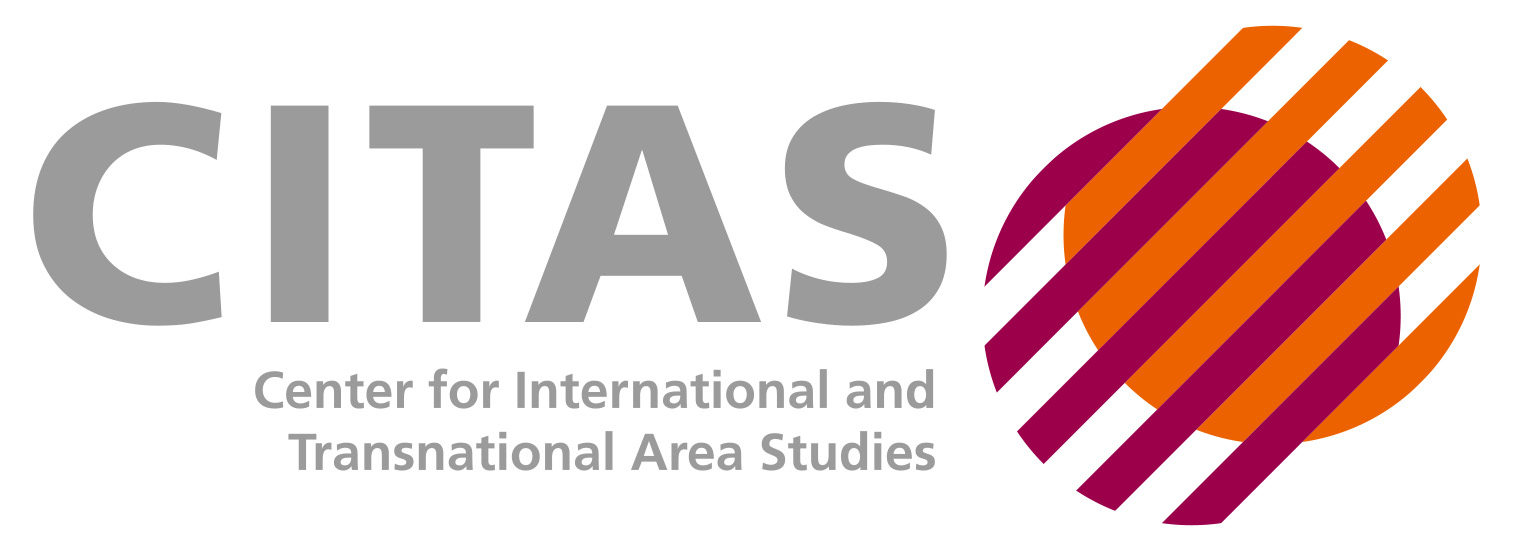CITAS Workshop (Regensburg)
"Obsolete, Resilient, Resurgent? The Nation-State in a Globalized World"
02.05.2019 at 18:00 – 04.05.2019 at 20:00
The Center for International and Transational Studies in Regensburg is hosting a conference entitled "Obsolete, Resilient, Resurgent? The Nation-State in a Globalized World". The conference will take place at the campus of the Universität Regensburg as well as at the Graduate School/IOS Regensburg from 2 to 4 May 2019. Professsor Dr Matthias Middell (Leipzig) and Professor Dr Johanna Bockman (Fairfax, VA) will contribute to the event with public key note lectures.
The conference investigates the interconnection of the nation-state and globalization, both historically and in the present. It aims to further knowledge on how the national and global have been and remain co-constitutive, during periods both of expanding globalization and of efforts towards restricting or resisting it. In the globalized world, goods, ideas, cultural works and people seem to cross borders and circulate without limits. Yet the interconnectedness of domestic, foreign and international policy, which also influences everyday life, seems to be challenged by a retreat from multilateralism and cooperation. From the 1970s, belief in the obsolescence of the nation-state and nationalism became prominent across the political and disciplinary spectrum, from international relations to history. Likewise, the transnational turn in cultural studies and the social sciences has drawn attention to identities beyond the nation, ranging from subnational and local cultures to global cosmopolitanism. However, belief in the obsolescence of the nation-state might seem misplaced today given events in different world regions, including the foreign and economic policy of Donald Trump’s administration, Brexit and populism in Europe and Latin America. Exploring how the nation-state and nationalism were part of a globalizing project and have remained resilient under globalization is thus pressing. Drawing on the traditional strengths of area studies, evident in its multiregional and multidisciplinary perspectives, enables the conference toexamine whether the current recalibration of relations of the national and global is exceptional and what options are open for a multilateral and global future.
Perhaps the slogan of a “Global Britain” professed by some Brexit supporters encapsulates thecomplexity of the global-national entanglement. National standing is imagined transnationally and comparatively, while the illusory proposition of “taking back control” to secure unbridled sovereignty means remaining in structures of global governance, transnational political and economic ties, global communication infrastructure, and mobility and migration. These themes form the focus of the conference panels, alongside historical and cultural approaches highlighting the legacies of empires and nation-states in forging a global world that emerged alongside and out of colonialism and imperialism. The conference thus asks: How did the nation-state come to be seen as passé across many disciplines and regions? What political, economic, social and cultural consequences has teleological faith the nation-state’s obsolescence had? How has the nation-state been a crucial element of globalization rather than its antithesis? How are the global and transnational entangled in the current national resurgence? And how have the national, subnational and local proven both resilient in the face of globalization and also co-constitutive of the global world?
There will be panels addressing the past, present and future significance of national and transnational structures, exchanges and tensions across a range of disciplines. The conference is supported by the Vielberth Foundation. View the preliminary programme here (.pdf).
Professor Dr Matthias Middell (Leipzig) will deliver the opening keynote lecture on 2 May, 6 p.m. at Landshuter Str. 4. Having studied history at the Leipzig University and being awarded a PhD in the field of French revolutionary history there in 1989 and a habilitation with a study of world history writing during the 20th century in 2002, Middell's research interests currently include the historical evolvement of the global condition, the comparative and global history of revolutions, and the history and methodology of history writing in a global age. As head of the Erasmus Mundus Global Studies Consortium, he has been teaching regularly at partner universities and co-supervising PhD candidates together with colleagues from France, South Africa, and Ethiopia.
Professor Dr Johanna Bockman (Fairfax, VA) gives her keynote lecture on 3 May, 6 p.m. at the university campus (room PT3.0.79). Bockman is Associate Professor at the College of Humanities and Social Sciences of George Mason University. She works in economic sociology, urban sociology, sociology of globalization, and East European Studies. Her book Markets in the Name of Socialism: The Left-Wing Origins of Neoliberalism was published by Stanford University Press. In her research, Bockman uses comparative and historical methods, moving beyond studies of nation states to explorations of transnational trends, such as neoliberalism and the non-aligned movement.
The conference also includes a panel of Turbo Talks for early career scholars. Here you can present your research briefly before enjoying informal and in-depth discussions with the experts from across the disciplines attending the conference. If you would like to present a Turbo Talk, please contact CITAS.
Where: Regensburg – Universität Regensburg, Universitätsstr. 31, 93053 Regensburg, "Großer Sitzungssaal des Philosophikums" (Room PT 3.0.79) & Graduate School/IOS Regensburg, Landshuter Str. 4, 93047 Regensburg, Room 017
When: Thursday, 02.05.2019, 6 p.m. to Saturday, 04.05.2019, 1:30 p.m.


